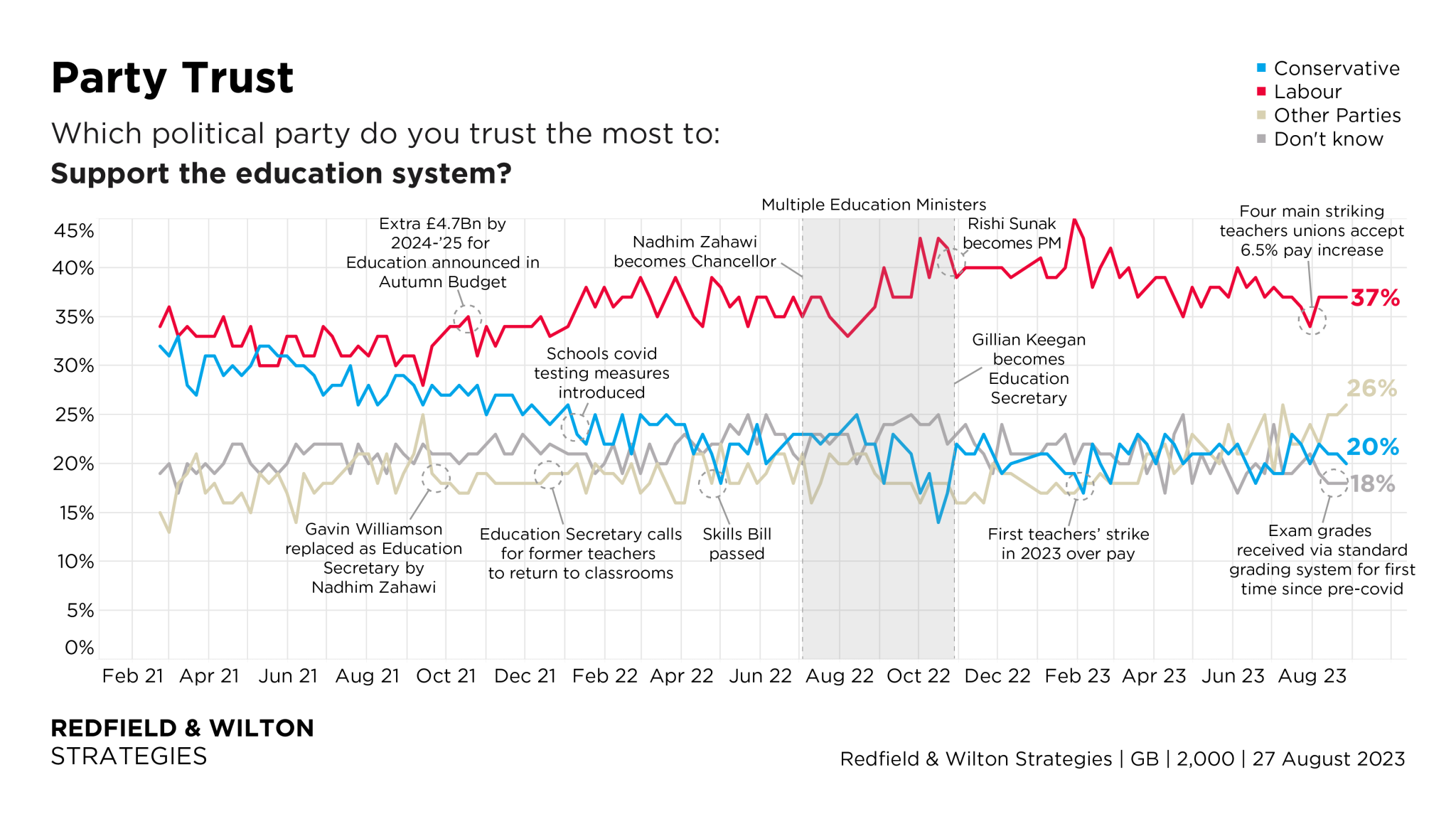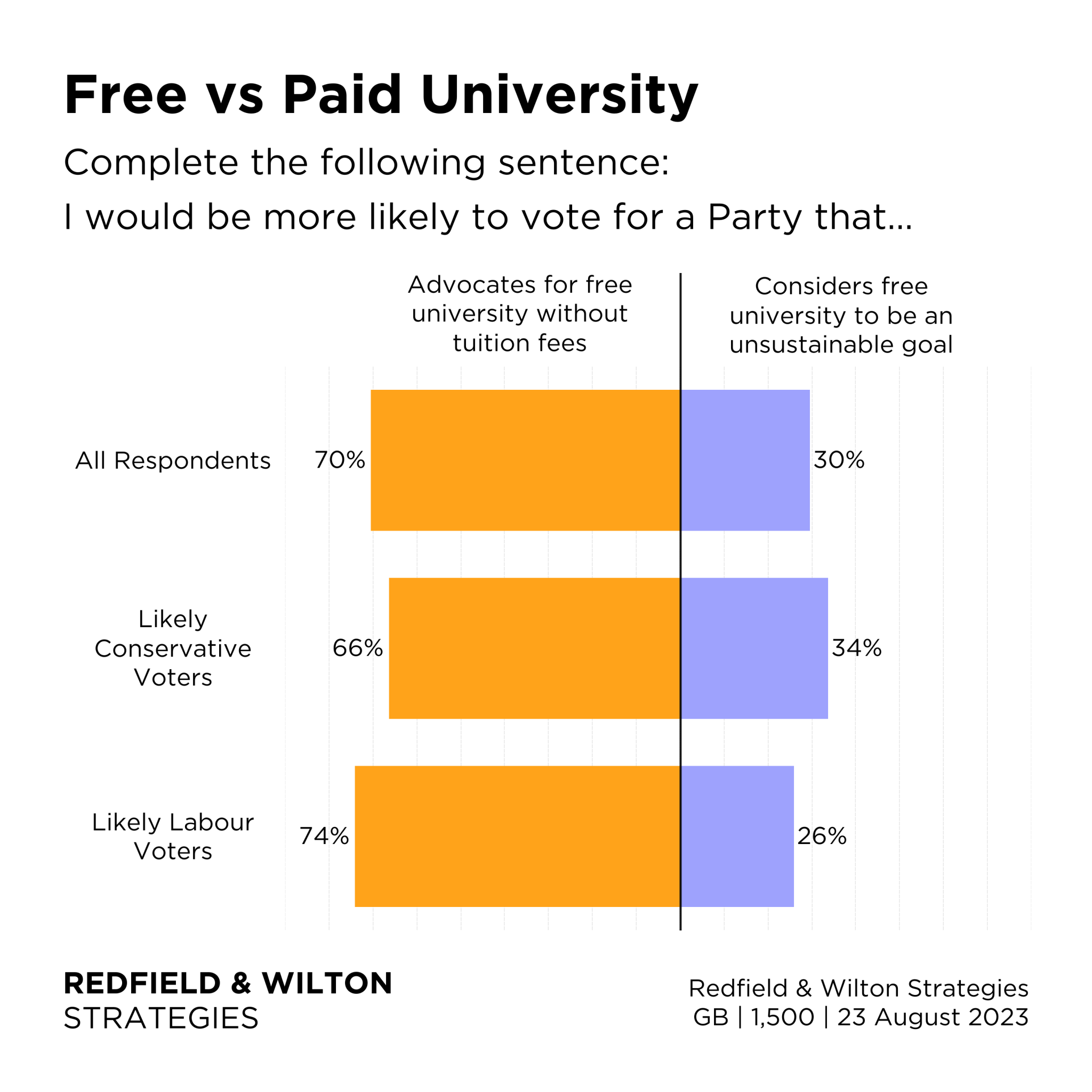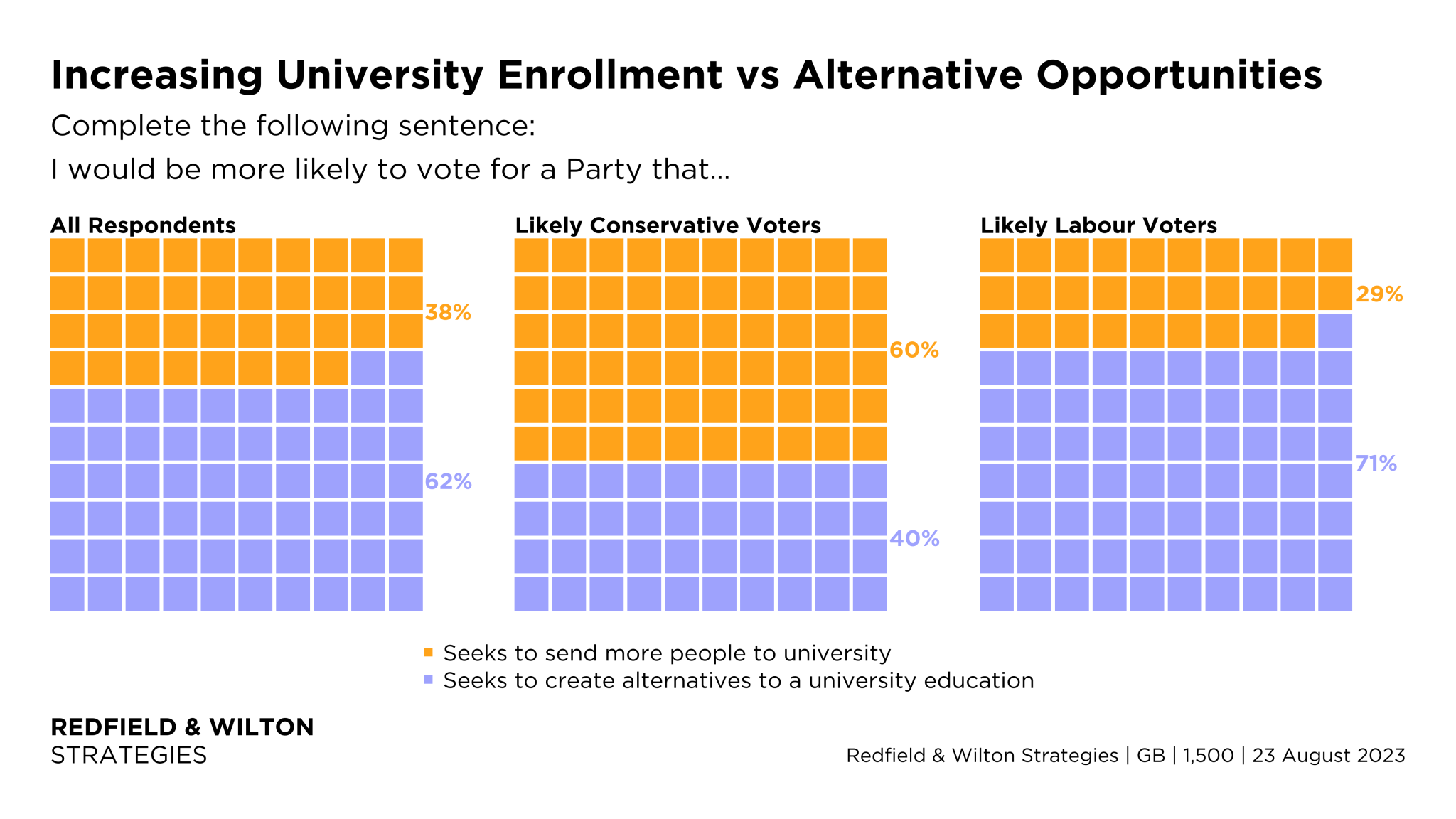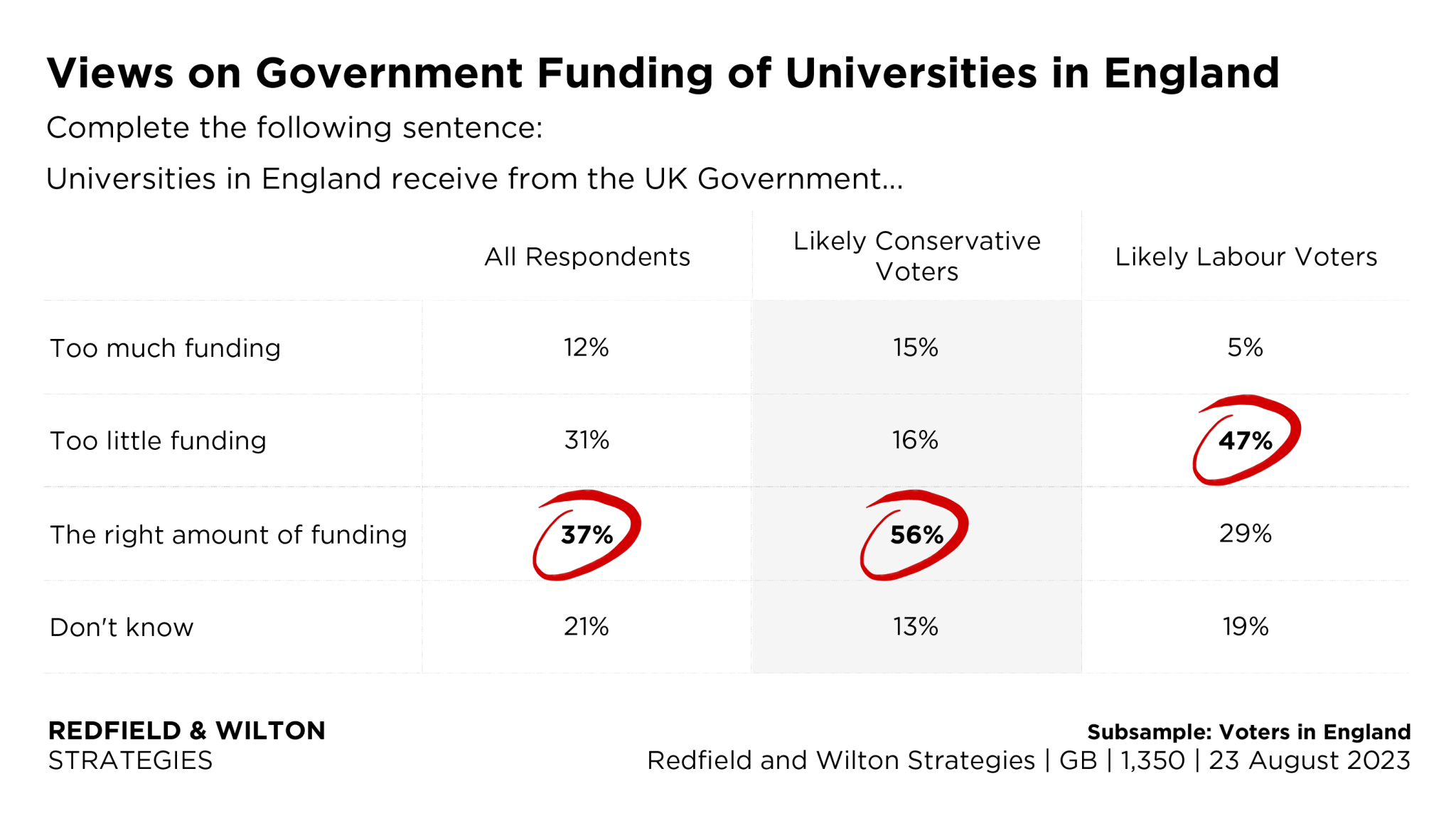In August Labour Leader Keir Starmer described the current system of tuition fees as “unfair and ineffective,” adding that he, personally, would not be able to afford university if he were a school leaver today.
Starmer’s comments came in anticipation of a forthcoming Labour plan to reduce tuition fees and, building on a pledge he made in July, break the “class ceiling” in education by boosting vocational training, ending the “snobbery” over the value placed on university degrees, and improving young Britons oracy skills.
Meanwhile, the Government has recently placed a greater focus on improving the quality of university education, with Prime Minister Rishi Sunak last month announcing plans to reduce funding for “rip off” degrees.
Amidst this debate, pollsters Redfield & Wilton Strategies asked British voters about their attitudes towards higher education issues. It’s helpful to have in mind when lobbying MPs (and prospective MPs in the run up to an election) this year.
Firstly, it found Labour currently holding a 17 point advantage (37% to 20%) over the Conservatives as the party most trusted to support the education system.

Beneath this headline figure, British voters are, in fact, more likely to vote for a party that advocates for free university without tuition fees than one that considers that goal to be unattainable – despite neither Labour nor the Conservatives currently advocating for the abolition of the tuition fees system first introduced in 1998 under Tony Blair.
70% of Britons say they would be more likely to vote for a party that advocates for free university without tuition fees, including 62% of 2019 Conservative voters and 69% of 2019 Labour voters. 30% say they would be more likely to vote for a party that considers free university to be an unsustainable goal.

At the same time, however, a majority (62%) of British voters say they would be more likely to vote for a party that seeks to create alternatives to university education, against 38% who say they would be more likely to vote for a party that seeks to send more people to university.

Majorities among both 2019 Labour (67%) and Conservative (55%) voters say they would be more likely to vote for a party that seeks to create alternatives to university education.
In England, where the UK Government sets both the funding model and tuition fee rates for universities, the two major parties currently accept that universities in England are underfunded.
Yet, that consensus view clashes with the prevailing opinion amongst voters. A plurality (37%) of English voters think that universities in England receive the right amount of funding from the UK Government, while an additional 12% believe the UK Government currently directs too much funding towards English universities.
A not insignificant 31% believe that universities receive too little funding at present, but that figure remains a minority view.



















